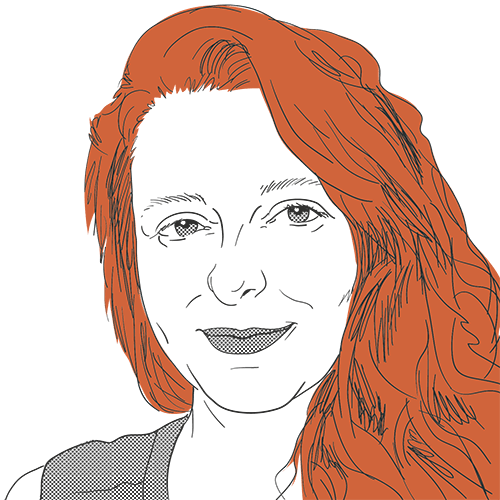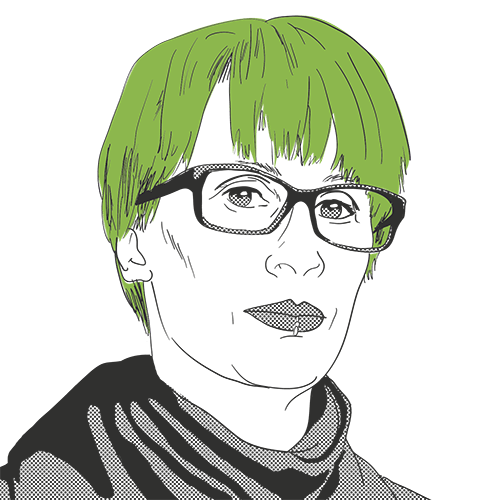Our Team

Julie Farrell
Director. Co-Founder. Disruptor.
I’m a queer, disabled, neurodivergent author and award-winning poet based in Edinburgh. My poem ‘Ripples of Change’ won the Aurora prize for Writing 2021, and my contemporary young-adult novel, We Are Fractals, was shortlisted for the SCBWI Undiscovered Voices Anthology 2022, Write Mentor Children's Novel Award, and the Owned Voices Novel Award 2021. Themes of disability run through my work. I am listed in the Bookseller Top 150 Most Influential in publishing.
I’ve talked about accessibility in publishing at various events, including the FutureBook conference, the Society of Young Publishers Scotland conference, the Poetry Society conference, and the CRIPtic X Spread the Word Retreat.
I consult on accessibility with several literature organisations in the UK and I’ve worked in publishing for nearly a decade, primarily as a freelance PR, Marketing & Events executive. I'm a trustee for Mselxia, and I'm a member of the advisory group for the Arts Council England Access Scheme.
In 2020, I curated and chaired a panel at Paisley Book Festival, ‘Breaking the Mould’, which discussed how we can improve access in the literature sector. My poem ‘Imagine’ was published in ‘Not Going Back To Normal’ – A Disabled Artists Manifesto.

Ever Dundas
Co-Founder. Disruptor.
I’m a queer crip author based in Edinburgh, represented by Jenny Brown Associates. In 2017, my novel Goblin won the Saltire First Book of the Year award. My second novel, sci-fi thriller HellSans, has disability as a central theme and will be published by Angry Robot in Oct 2022. I'm listed in the Bookseller Top 150 Most Influential in Publishing.
I have talked about disability in the publishing industry at various events, including at Paisley Book Festival, the Society of Young Publishers conference, Book Week Scotland, and a Literature Alliance Scotland members meeting.
I’m on the Scottish Book Trust’s Writers’ Advisory Panel, primarily advising them on disability and access, and SBT commissioned me to deliver a video covering online events accessibility.
In 2019 I set up Crip Collective, a Facebook group for disabled and chronically ill people in the UK publishing industry. It’s a supportive hub with over 100 members.
I was featured in Dani Garavelli’s Scotland on Sunday piece ‘Not Going Back to Normal’, which focussed on the experience of disabled artists during the pandemic and their access to culture.
“Now more than ever the literary world should be open to every person who wants to take part. Inklusion are taking a much-needed first step towards a more inclusive and diverse live book scene.”
Good access is important to us
Julie says:
When I was planning and delivering monthly events, annual conferences, festivals and awards for the Society of Young Publishers and Professional Publishers Association Scotland a few years ago, accessibility was the last thing on my mind. I understand that people who aren’t disabled tend not to consider or prioritise access, and that’s why I’m passionate about delivering this concise, user-friendly, but comprehensive access guide for the literature sector in the UK.
Ever says:
Since my debut came out in 2017, my experience as a disabled author and audience member has varied across the industry. Access is inconsistent, and it was difficult having to constantly advocate for myself, not knowing how that would be received. I don’t want fellow disabled people to go through this and feel excluded from culture. Good access practice should be the norm, not the rare exception, and I’m passionate about making this happen.
“The work being undertaken by the Inklusion team will play a vital role in shaping how the UK literary sector moves forward to become more inclusive and accessible. As someone who both chairs and puts on events, digital and in person, I’m looking forward to being educated by this guide and implementing its recommendations.”

